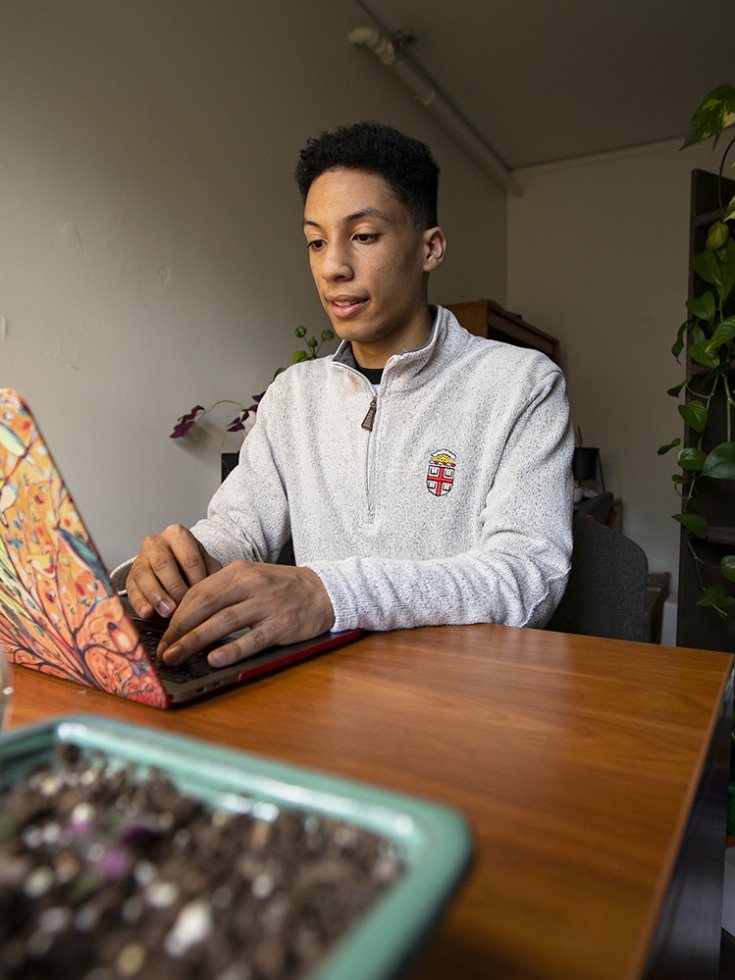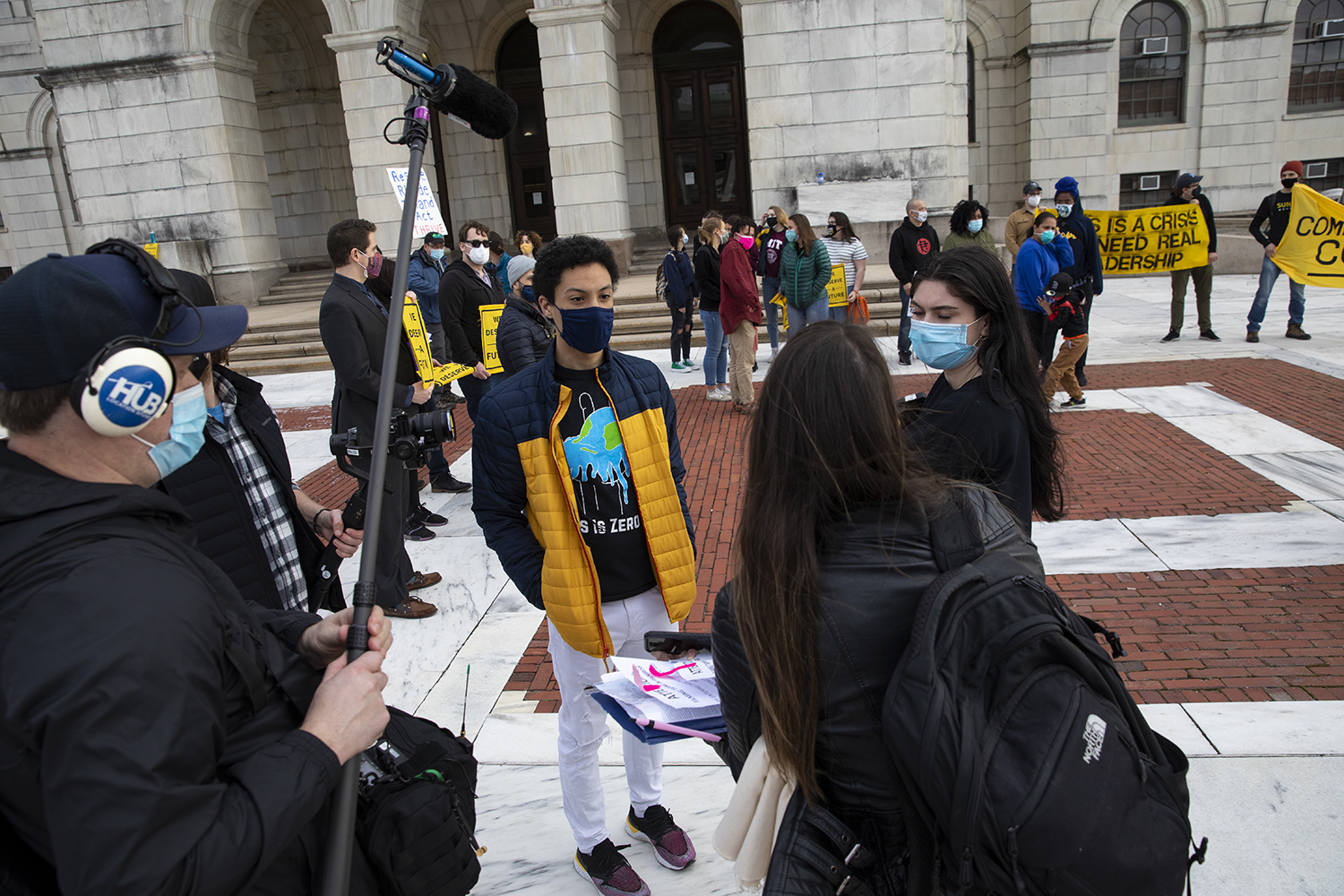PROVIDENCE, R.I. [Brown University] — When viewing the website for Zero Hour, a global climate justice organization led by high school and college students from around the world, the first thing visitors will notice is a ticking clock.
The clock is counting down the years, to the second, until the moment when the Earth is projected to warm by 1.5 degrees Celsius — a jump expected to exacerbate the worst effects of climate change, unless humans drastically reduce the impacts that their industries and individual choices are having on the environment by 2030.
For humankind, stopping that clock is a matter of survival, said Zanagee Artis, a junior at Brown and Zero Hour’s co-founder and policy director.
“The climate justice movement is really a movement to preserve our futures,” he said. “It’s about making sure that there is something left for young people in the future by addressing different systems that have caused the problem of climate change — by changing not just the industries that are polluting and changing our climate, but also the entire way that we interact with the world.”
Artis was a high school student living in Clinton, Connecticut, when he co-founded Zero Hour in 2017 alongside a handful of student activists from around the country who were determined not to wait until they were old enough to vote to begin reshaping climate policy.
“We really started Zero Hour because we knew that we were running out of time to address climate change — that it was a problem that we had to address right now,” he said.

